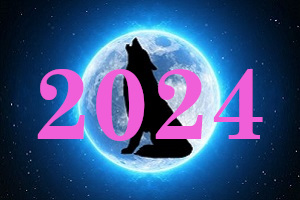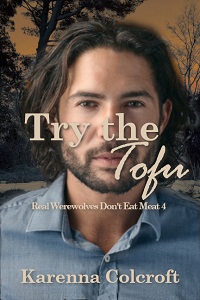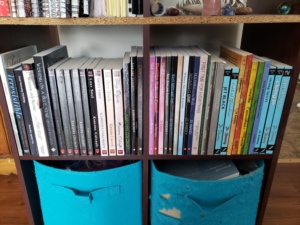Being neurodivergent, I have a brain that sometimes cooperates with me and sometimes doesn’t. The more I have on my figurative plate, the less my brain cooperates.
Over the past week or so… it hasn’t exactly been cooperating. I’ve been deep in the thick of revisiting how I approach writing and publishing. Since I started self-publishing a little over 2 years ago, I’ve looked at it as something I want to have fun with that might also bring in some royalties. Which is what it has been.
But more and more, I’m realizing that I want to reach more readers and have more visibility in the world. I want to be one of those authors that someone thinks to recommend when someone else asks for werewolf books, or less-known authors, or books with cats in them, or whatever. I want to be more intentional and thoughtful about what I write, when I write and release it, and how I let people know it exists. So I’ve been doing a deep dive into planning, reading or watching info from authors who are where I want to be, reconsidering my writing schedule, and so on.
On top of doing that, I’ve also been driving rideshare, continuing my weekly volunteering at a local cat cafe, keeping the house reasonably clean, trying to make sure I have something resembling supper ready for my kid when they come home from work (I call them my kid because it’s the only gender-neutral term we’ve agreed on for their relationship to me; “child” doesn’t work because they aren’t one, and they don’t like “offspring” or “spawn”, but they aren’t a kid, they’re in their 20s), trying to find a job that *isn’t* driving rideshare, trying to replace the car that I’ve had for five years that has been pretty much destroyed by driving rideshare…you get the idea.
(This week at the cat cafe, I apparently was the official lap… here’s a picture of Speedy, or as one of my friends referred to him, “a fluffy raincloud,” lying on me.)

There’s been a lot going on. And sometimes, my brain just glitches out. Like yesterday, when I literally could not figure out how to bring a paper prescription to the pharmacy, get the meds from the pharmacy, do the grocery shopping, and do rideshare. I wound up not getting the prescription filled. (It’s for the kid’s cat, who needs eye drops periodically, so it wasn’t urgent.) But I also wound up not being able to figure out anything to make for supper, because I’m not adept at cooking and struggle to follow recipes–or to even find a recipe I want to try–and by the time I got home with the groceries, my brain was just like “Nope, not cooking, screw it.” I had a microwaved veggie burger and ice cream for supper. Kid fortunately had gotten food on the way home from work so didn’t need me to prepare anything for them.
Today… who knows? I won’t be leaving the house. The one thing I’ve promised myself is that Saturday is my day to stay home, rest, and catch up on things that didn’t get done because I had to *leave* the house to do rideshare and errands and such. (The only exception is if I’m visiting family or there’s something special going on.) But I’m still trying to do the planning and learning and housework (oh my). And I do want to make an actual supper tonight, but I’ve already got that organized and just need to actually put things in a pot and cook them later.
I’ve always had issues with organization, time management, etc. When I was growing up, and even in my early years as an adult trying to hold down a full-time teaching job, I was told that I was lazy, that I could do it if I wanted to, that I needed to “try harder,” that I obviously just didn’t care about getting things done properly. None of which was true, but in those days–that makes me sound old, but then I realize that “those days” were actually over three decades ago, so maybe I *am* old–not as much was known about autism and ADHD and CPTSD and other things that alter the way someone’s brain works and processes. I’m realizing through my kids’ experiences that all the things I was condemned and insulted and bullied about, and all the things that made holding a job effectively so much harder for me than it appeared for other people, weren’t laziness or lack of caring or lack of trying. They were because my brain is not wired like the brains of the people who were saying those things to me.
When I was teaching, after a little trial and error, I found an organizational system that worked for ME, for the way MY brain works and processes. (I also found a principal who bitched at me for using my system instead of doing things the way she wanted me to, even though my way ensured that I was the most effective teacher for my students and their parents and that all the paperwork and lesson plans were actually being completed; that job didn’t last long.) In my personal life, my writing life, etc., I’ve had to do similar trial-and-error things to find out what works for me, instead of getting hung up on what other people say *should* work for me. Things like folding and sorting each item of clothing as I remove it from the dryer, instead of yanking it all out of the dryer and into the basket, then having to fold it later. Or color-coding the stages of my writing projects so I can see at a quick glance where I am with which book.
But it does take trial and error, and when I add a new thing, or entire new set of things, to the table, as I’m doing now with the planning and learning about writing and marketing and such, sometimes my inner executive stops functioning. And I’ve learned to be kind to myself when that happens, because I know *now* (at age 54) that that doesn’t happen because I’m lazy or don’t want to do it, it’s because my brain is wired differently and sometimes needs a break or a different approach.
At least takeout food is a thing…








